By Jessica Ooi
Cast against the amazing Swiss Alps as a backdrop, the deMello research group at ETH Zurich, Hönggerberg campus welcomed me as a visiting scholar - and what an amazing and life changing experience that has been!
As a result of the attachment over summer, not only did I have the privilege of collaborating with multiple members of the group on different aspects of my project, but I also experienced what it was like to be part of a big research group in one of the top universities in the world.
By the way - only when in Zurich did I learn that Albert Einstein studied at ETH and there are also more than 30 Nobel Laureates associated with this fine institute.
But the journey to one of the highest and most beautiful mountain ranges in the world did not come without trials…
My journey began…
…when a close friend passed away due to ovarian cancer. Unfortunately, despite her young age, the fact that she was diagnosed late and ultimately led to poor survival outcomes was devastating.
Only then did I discover that in Malaysia, ovarian cancer is the 10
th most common cancer and among women, it is the fourth most common cancer.
Today, as a pharmacist and PhD candidate at Nottingham University, Malaysian Campus, my current project involves developing a nanosensor to detect the presence of an ovarian cancer biomarker in human serum.
To put it in simpler terms, my research is aimed at developing a way to detect ovarian cancer before it's too late.
With this sensor, I hope to fabricate a tool which can enable more Malaysians to access early screening of ovarian cancer - and be used in a population-based cancer screening program in rural areas as well urban ones.
Such a short attachment in Zurich…
… in spite of which, I am thankful for the opportunity to learn more about nanomaterial synthesis, microfluidics and device fabrication with many of the world’s leading minds.
The three months flew by as I worked with so many bright minds - including Professor Andrew DeMello and Dr. Daniel Richards at the Institute for Chemical and Bioengineering, Department of Chemistry and Applied Biosciences, ETH Zürich. Their encouragement, support and supervision throughout the attachment has been invaluable. I also had the pleasure of working with Andres Javier Bello Hernandez and Thomas Moragues - to synthesise silver nanoplates. With Andres Rocha Tapia, I had insightful discussions and am grateful for his practical assistance with my experiments. Leonard Bezinge and I had interesting brainstorming sessions about potential device designs and for making those designs a reality with 3D printing(my first hands-on experience with this tech). Dr. Emmanuel Delamarche’s lectures on micro/nanotechnology and microfluidics for biomedical applications, meanwhile, kept me fascinated.
As I was based in Zurich, I was able to attend two symposiums on point-of-care technologies (the 5
th Swiss Symposium on Point-of-Care Diagnostics and Münchner Point-of-care Testing Symposium) where I gained insights into technologies that have already been commercialised as well as the future of point-of-care testing.
The engagements with people from the pharmaceutical industry also gave me a different perspective on research, which inspires me to explore and expand my horizons for future work.
When I was there, I was given access to an electronic lab book platform called Benchling. I was always used to having a physical lab book. However, I came to enjoy using Benchling because it facilitated knowledge sharing with my peers and it made cross-referencing and linking of experiments done at different times so seamless! Not to mention, it’s also helped me organise my lab entries.
And beyond research….
…I experienced Switzerland’s beautiful natural surroundings, heritage sites and museums, traditional food, and excellent public transport system. It was truly an enriching learning experience on all fronts.
I did several hikes during my trip there, hoping to come across the rare and beautiful national flower of Switzerland. The edelweiss bloom is a symbol of devotion - as its flower grows in some of the toughest alpine conditions in the world. Sometimes, scientific research feels like we’re really trying hard to get to a breakthrough, and I take comfort that there is life and hope even in the hardest places.
To Malaysia’s up-and-coming researchers…
…follow your passion. Don't just do what is easy or appears to be easy because what you thought was easy may not be the case at all.
In contrast, if you were to follow your passion, do something that was actually interesting to you, you might actually stay the course longer and work harder because you're passionate about it and have fun doing it as well. There is no mountain too high when you’ve set your heart on creating breakthroughs!
Thank you, Merdeka Award Trust for making this possible!
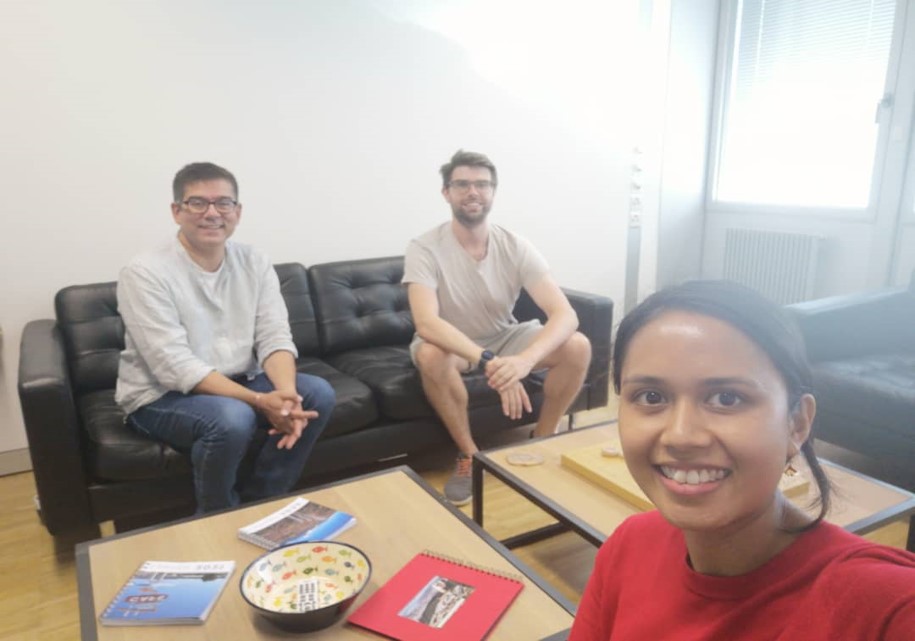
From Left: With Professor Andrew deMello and Dr Daniel Richards
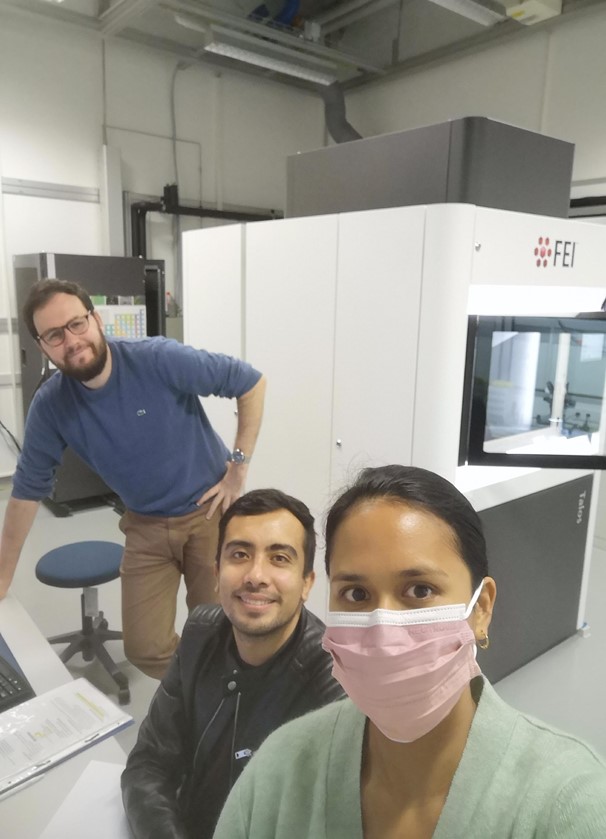
From left: With Thomas Moragues and Andres Javier Bello Hernandez
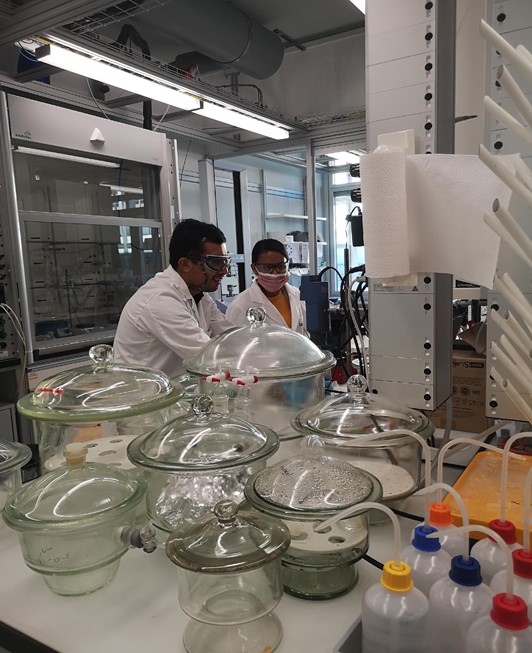
Synthesis experiments with Javier and Thomas (taking the picture)
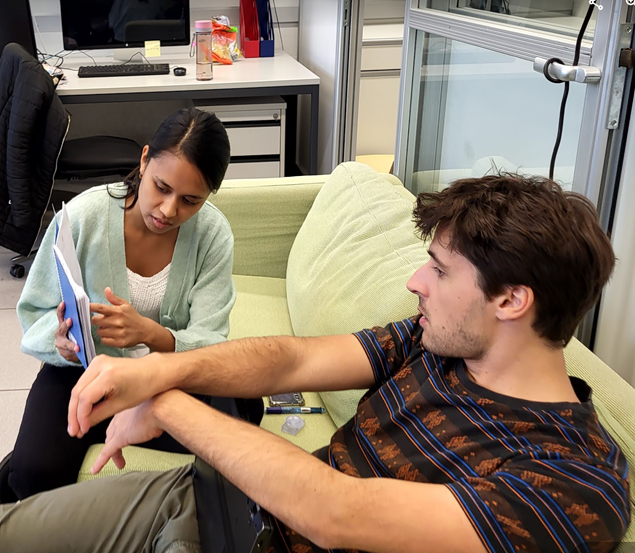
Discussions with Leonard Bezinge about device designs
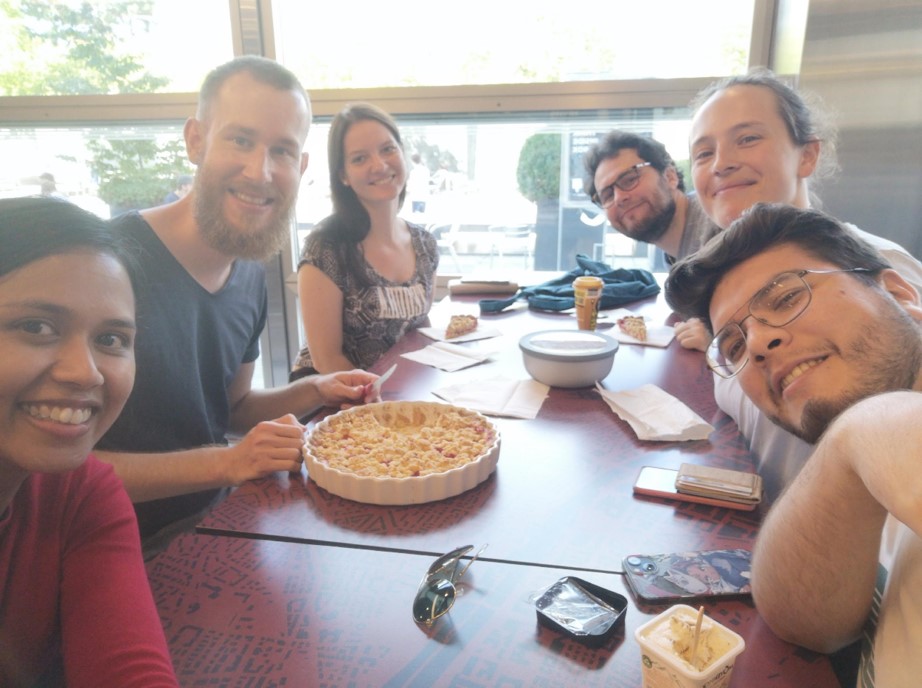
Bonding over food with fellow researchers (from left): Jan Krohn, Nika Zurga, Thomas Moragues, Julia Nette, and Andres Rocha Tapia
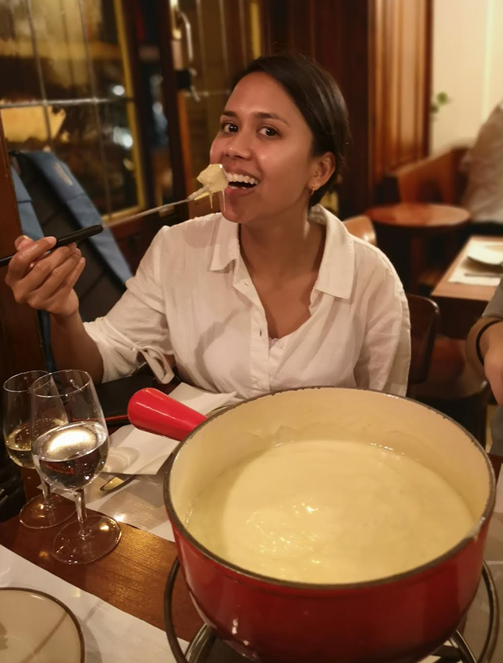
Trying Swiss fondue with friends from the research group
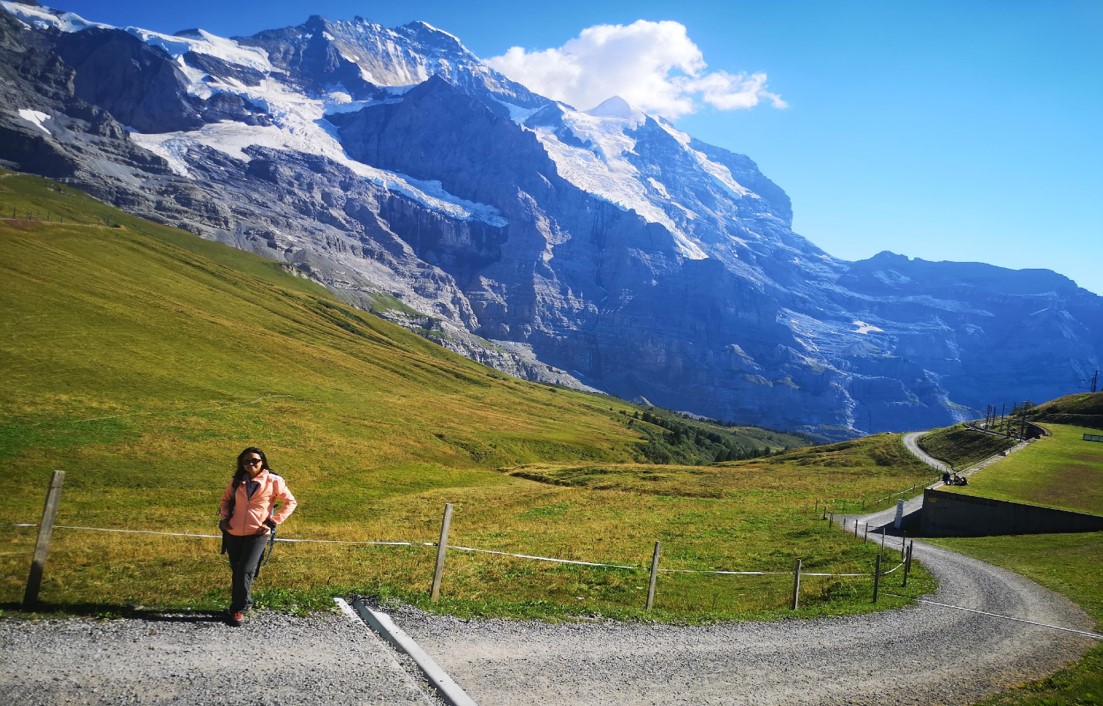
Hiking near the mountains on one summer weekend